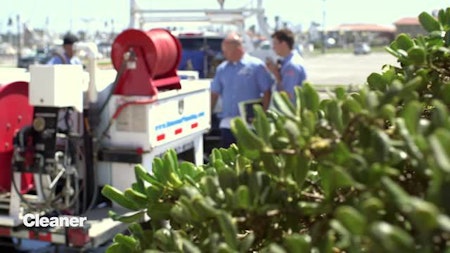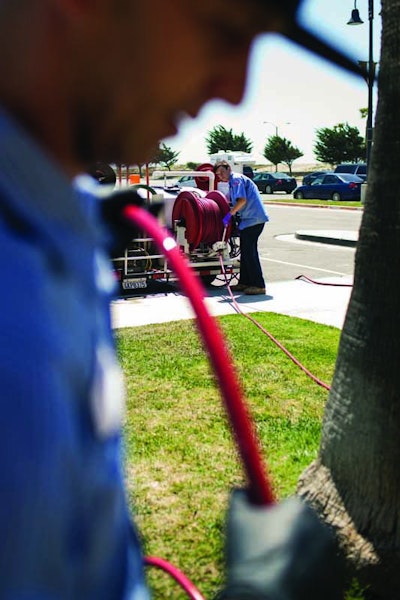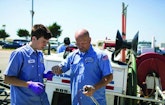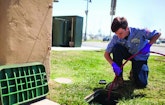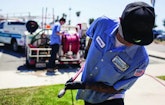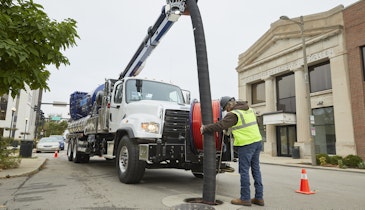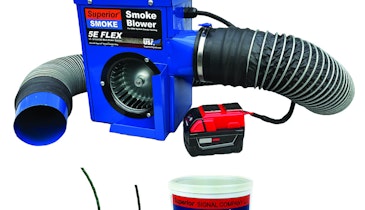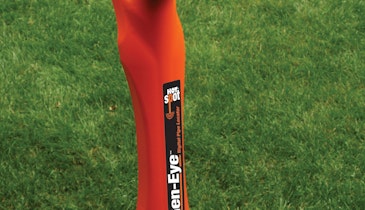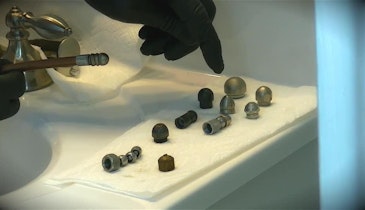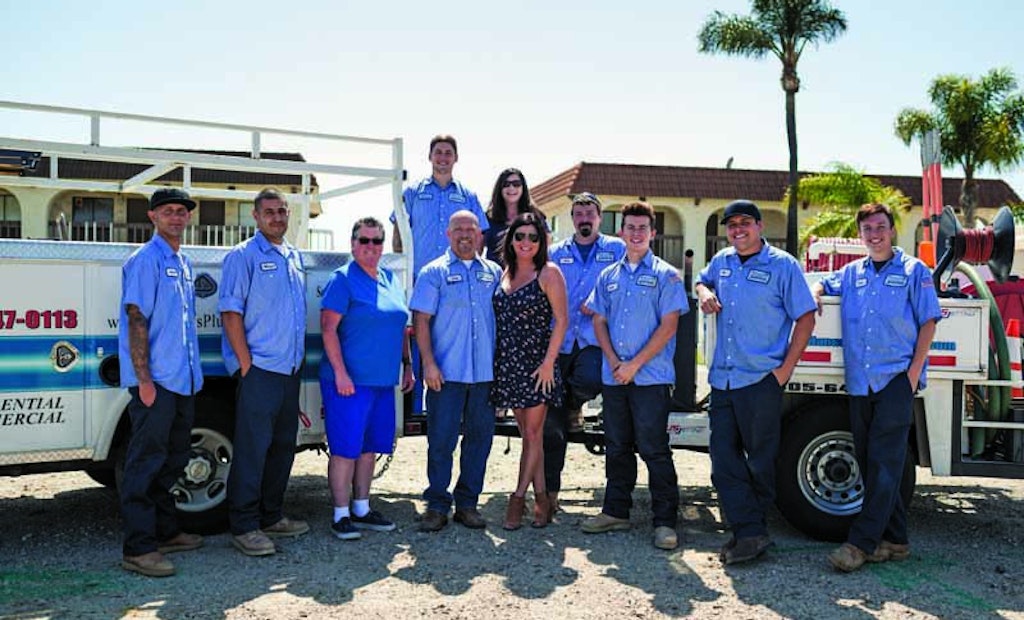
Interested in Location/Detection?
Get Location/Detection articles, news and videos right in your inbox! Sign up now.
Location/Detection + Get AlertsFor years, Cary Hansen felt like he owned just a job while running his business, Hansen’s Plumbing & Mechanical in Ventura, California. But fueled by a relentless drive for self-education in the ways of business, Hansen now feels like he truly owns a company — and the distinction between the two has made all the difference in terms of profitability, not to mention job satisfaction.
“When you own a job, you don’t make money unless you’re working,” says Hansen, who established his company in 1987. “But when you own a company, you make money even if you don’t work because you’re delegating responsibilities. You can’t do everything. … You have to trust people; let go of the vine, as they say.”
Hansen’s experience is familiar to many drain cleaners and plumbers who strike out on their own, only to discover they’re more skilled at plying their craft than running a profitable business. But Hansen’s journey from tradesman to businessman shows that by making good use of available resources, it’s possible to become skilled at both.
How skilled? Since Hansen took steps in 2005 to make his business more structured and, well, businesslike, he estimates that gross revenues increased between 800 and 1,000 percent. “Before, I wasn’t even taking a salary,” he says. “The money came in and I bought what I needed. The materials bills would go up and I’d try to pay them down. There was no structure at all, and work was taking a physical toll, too.
“Now that the company runs more by itself, I have more free time,” he adds. “I got some balance back in my life that you don’t have when you just own a job. Before, after so many years of doing everything myself, I got stressed out and burned out. But it reinvigorated me to learn how to really run a business — helped me put more passion back into the company. I still go out in the field to support the guys, but now it’s about a 30/70 split between being in the field and in the office. It’s a much better balance for me.”
Business 101
Hansen started out his career as a backflow tester for a plumbing company in Ventura. Frustrated with the company’s operations, he decided to start his own backflow testing company. “I figured I would do small plumbing jobs until I built up a large enough client base for backflow testing,” he recalls. “But it worked out the other way around.”
By the early 2000s, Hansen employed four technicians and was focused on plumbing service work, drain cleaning and custom installations in new homes. “But there was never anyone in the office,” he says. “I had too many hats on, so we dropped custom installations and focused just on service work.”
In 2005, Hansen says sheer frustration and stress prompted him to “get serious about owning a solid company.” He started by poring through trade magazines to figure out best business practices. He also attended seminars run by business consultants such as Al Levi, the owner of Appleseed Business Inc., and Ellen Rohr, the owner of Bare Bones Biz Inc.
But the real turning point occurred when Hansen started participating in online sessions run by the Service Roundtable. That led him to an affiliated group called Service Nation Alliance, a coalition of select contractors that teaches business planning, operation, finance and marketing skills. It also provides access to a network of contractors who can answer questions about business problems, as well as weekly training webinars, vast website resources and the ability to buy materials at a volume discount from select vendors, Hansen says.
Like anything, however, nothing good comes free; Hansen estimates he initially spent about $15,000 for the Appleseed and Bare Bones seminars and a Service Nation membership, which requires a $10,000 fee, plus $100 a week. But he says the cash outlay, while painful, was a very worthwhile investment. “I was hesitant at first, but I’ve been very pleasantly surprised at the results,” he says. “It’s been great. If you run two trucks and want to grow, it can get you over the hump.”
As an example, he points to his company’s website, which was underutilized for years and had become a financial black hole of sorts, consuming cash while providing lackluster results.
But following a recommendation from a Service Nation mentor, Hansen contacted a consultant who redesigned and reconfigured the company’s website. “It had a definite impact,” Hansen says. “I’d say that once we got our website cleaned up, our service inquiries went up about 20 to 30 percent a week.
“Before, we probably received about 30 calls a week (from people who found the company online),” he continues. “And now we get about 40 a week. Our average ticket is about $400, so that comes out to several thousand dollars a week more than before. We even got a reduced website hosting rate because of our Service Nation membership.”
Good equipment promotes profitability
Residential work generates about 60 percent of the company’s business volume, with commercial work producing most of the rest. The company offers a variety of services, ranging from plumbing service to pipeline inspections and drain cleaning.
To provide this diverse array of services, Hansen’s Plumbing relies on a fleet of equipment that includes five service trucks: Chevy 3/4-ton utility box trucks with 8-foot bodies from Harbor Truck Bodies. The company also owns cable machines built by Quadra-Plex capable of handling pipes up to 4 inches in diameter; hand-held RIDGID sink cable machines; a trailer jetter made by US Jetting (4,000 psi at 18 gpm); four wheeled mini water jetters manufactured by Gorlitz Sewer & Drain (3,000 at 7 gpm); and three RIDGID SeeSnake pipeline inspection cameras.
“I always buy the best equipment I can find because it saves money in the long run,” he says. “For example, we used to buy less expensive camera systems and now we have a pile of old ones in our shop. Reliability is also an issue — if machines don’t break down, they keep making money for you. I’m a true believer in spending that (proverbial) extra $10 to make $20.
“Knowing they have good equipment to work with also keeps up our technicians’ morale,” he adds. “It gives them a more positive attitude toward work.” Moreover, reliable, well-maintained equipment impresses customers, who perceive they’re getting more value for their dollar.
In some instances, better equipment also helps customers make important decisions. For example, Hansen points out that the lights on his RIDGID SeeSnakes are more powerful than cheaper brands, so they provide better images that make it easier to show customers a problem in their drainlines.
Investing in more equipment also helps Hansen’s Plumbing generate additional revenue as a subcontractor for companies that don’t have the same resources. A good example is a smoke machine made by Hurco Technologies. “Hardly anyone around here has a smoke machine,” Hansen says. “They’re great because a camera can’t always identify where a smaller break is located, plus you can’t camera an entire drain and vent system.”
Municipal market beckons
Looking ahead, Hansen plans to buy a tractor-mounted camera system that’s capable of inspecting larger mainline pipes because he sees municipal work as an opportunity for growth.
“I believe the market is there,” he says. “The municipalities have their own equipment, but sometimes it breaks down and they need support. And there aren’t many other guys who do that kind of work.
“I’d like to get established with the camera and if that goes well, buy a vacuum truck,” he adds. “I’m trying to keep the financial risk down by taking things one step at a time. I’m confident that a tractor camera will pay for itself right off the bat. … If we do a good job, they’ll keep calling us.”
In the meantime, Hansen plans to keep learning and sticking with the business essentials that have transformed his business. “If something doesn’t work, change it,” he advises. “If it does work, keep doing it. Be relentless and keep going forward. It’s like eating an elephant — you take one bite at a time.”
Core values are more than a cliché
Mention “core values” to employees and you’re bound to see a lot of eye-rolling. But at Hansen’s Plumbing & Mechanical in Ventura, California, owner Cary Hansen firmly believes that core values have, well, value.
“Establishing core values helps a company build a better team, because everyone shares the same values and feels like they’re working for the greater good and each other,” he explains.
“I’m talking about things like having a can-do attitude, on-the-job integrity, respect, accountability and trust. When you share the same values and work together and support each other, it builds and strengthens the company.”
Hansen says that developing core values generates another benefit: New employees quickly realize if they’re a good fit or not — and if it’s the latter, typically leave on their own accord. “If they feel like they’re not part of the team, they don’t stay — they weed themselves out,” he says. “I never have to fire anyone.”
Based on Hansen’s own experience with business education, which he says radically transformed his business during the last 11 years, the company also emphasizes ongoing training and education as another core value. New apprentices cross-train with each of the company’s five technicians to get maximum exposure to different ideas and techniques. In addition to hands-on training in the shop and on the road, Hansen is also establishing three half-hour, internet-based training sessions a week for technicians, focusing on job safety, plumbing code updates and trade-related topics, like how to operate a water jetter.
“I’m also looking at training companies that can teach our service technicians how to talk better with customers,” Hansen adds. “Residential jobs are worlds away from working on commercial jobs.”
To motivate technicians, Hansen Plumbing offers competitive salaries and benefits and also pays quarterly bonuses to employees who check off enough boxes on a scorecard Hansen uses to grade their performance. This, too, helps reinforce core values like accountability and can-do attitude. “Ninety days is a better motivational window than an annual review,” Hansen explains. “It keeps them more focused and more driven.
“They earn the bonuses if they do really well on revenue, minimize service callbacks and generally support the team and aren’t a headache to manage,” Hansen says. “If they grade out really well, they can earn a bonus, a raise or even both.” The cash bonuses range from $150 to $250 and raises vary from 25 cents to $1 an hour.
“It works very well,” he says. “They don’t have to wait a full year for a raise, which minimizes continued requests for raises. We see a lot more positive attitudes and output.”
